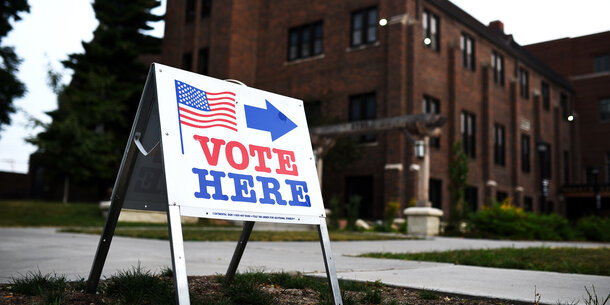Protesters across the country are demanding an end to police brutality and systemic racism in the wake of George Floyd’s murder by the police. Many of them will also be heading to the polls to seek these changes through voting. But in many states, those who have been most impacted by widespread racial bias in our justice system will not be allowed to join them because of unjust and discriminatory criminal disenfranchisement laws.
But now there’s an opportunity for improvement in California, where a bipartisan state senate vote Wednesday placed a constitutional amendment on the ballot in November that would restore the right to vote to people on parole. It’s called ACA 6, and voters approving it would build on the momentum around the country for giving voting rights back to Americans convicted of crimes. Just last week in Iowa — the last state that still permanently bars everyone with convictions from voting — the governor pledged to undo this undemocratic policy.
Currently, California is one of a very small handful of states that prohibit people on parole from voting but allows people on probation to vote. As a result, there are over 50,000 Californians living in and contributing to their communities who are unable to vote. And because people of color in the state are more likely than white people to be arrested, prosecuted, convicted, and incarcerated, they are disenfranchised at disproportionately higher rates too. This means that California’s disenfranchisement law disproportionately mutes the political voices of communities of color, further marginalizing those that are already underrepresented.
This is the case across the country, and there is a deep and troubling history of racism driving criminal disenfranchisement laws. Indeed, the same over-policing of Black communities that is being protested today is part of a centuries-old design meant to silence the voices of Black citizens. After the Civil War and the expansion of suffrage to Black men, states enacted “Jim Crow” laws designed to prevent them from exercising political power.
These laws were not limited to the South. California’s 1879 constitution provided that “no native of China, no idiot, insane person, or person convicted of any infamous crime” could vote. And just nine years before that constitution was adopted, the state refused to ratify the 15th Amendment, which prohibited voting restrictions based on race. California’s first governor even attempted to ban Black people from the state.
The differing eligibility rules between people on probation and people on parole causes confusion among both voters and elections officials. As a result, many Californians who are in fact eligible to vote, including Snoop Dogg, don’t know they are or refrain from voting out of fear of breaking the law. Such “de facto disenfranchisement” leads to further depressed electoral participation in the communities that bear the brunt of police violence and systemic racism.
Although California’s disenfranchisement policy has shut out many of those impacted by the criminal justice system from the state’s political process, that hasn’t stopped them from leading the fight to pass ACA 6. Like similar movements in Florida, Iowa, Connecticut, Kentucky, and New Jersey, key coalition members and organization leaders who started the effort in California have themselves been deprived of their right to vote.
Wednesday’s supermajority vote by the state senate to move the measure forward should be celebrated as a significant step towards addressing the racial discrimination that remains part of California’s constitution and other institutions. It comes the same week as the anniversary of Richardson v. Ramirez, a notorious Supreme Court decision finding that the U.S. Constitution permits state criminal disenfranchisement laws.
Now, with this proposition on the ballot, California voters will have the rare chance to use their vote to expand democracy. Hopefully, it will be the last election in which their friends, family, and neighbors on parole will not have a say in the future of their state.







